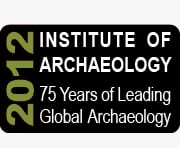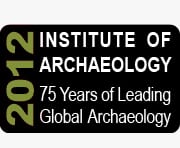Are museums failing us?
By news editor, on 9 March 2012
 A distinguished panel of experts agreed that, in general, museums are failing the public they are intended to serve. That was the resounding opinion of four heritage professionals forming the panel for the UCL Institute of Archaeology’s debate entitled “Presenting the past” held on Monday 5 March.
A distinguished panel of experts agreed that, in general, museums are failing the public they are intended to serve. That was the resounding opinion of four heritage professionals forming the panel for the UCL Institute of Archaeology’s debate entitled “Presenting the past” held on Monday 5 March.
David Clarke, former Keeper of Archaeology at the National Museum of Scotland, complained that museums all display things the same way, slavishly sticking to a chronological walk through their exhibits, when the majority of visitors to a museum care little whether an artefact is 200 or 2,000 years old.
Dominic Tweddle, Director General of the National Museum of the Royal Navy, described the majority of museum displays as “stultifyingly boring” and bemoaned the uniformity of approach. He highlighted the need for creativity in display in order to excite the public, in the same way that archaeologists and curators are excited by the past.
 Close
Close




